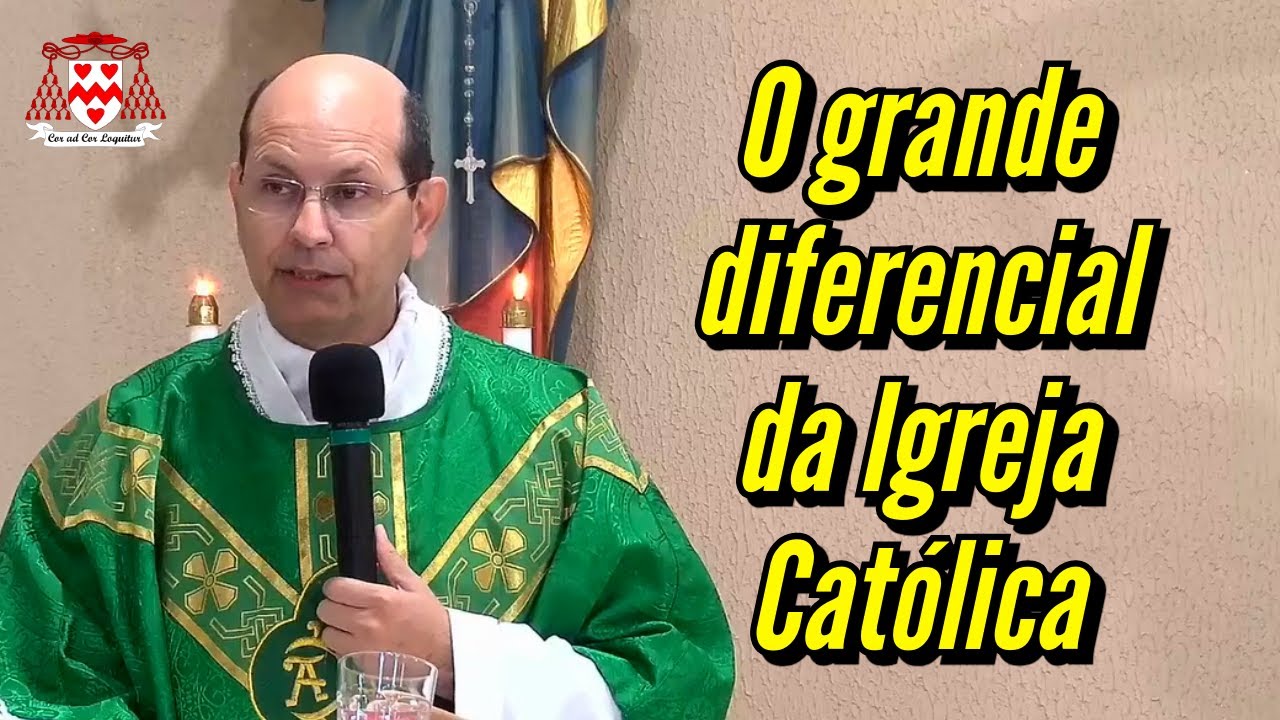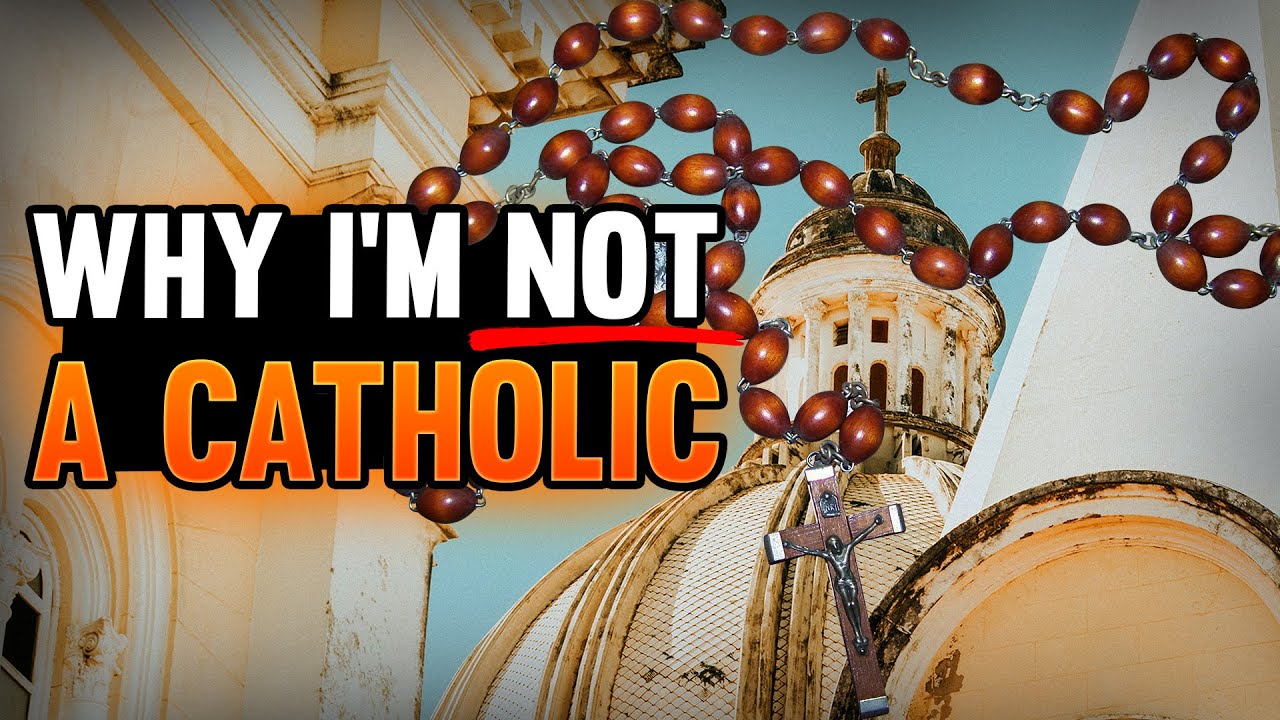Experience the power of the Sacraments
Summary
TLDRIn 'The Bible and the Sacraments' series, Matthew Leonard explores the Catholic sacraments' significance and origins. He delves into their physical and spiritual aspects, explaining how sacraments use physical elements to convey supernatural grace. Leonard connects sacraments to their biblical roots, highlighting their role in salvation history and their evolution from Old Testament foreshadowings to New Covenant realities. The series aims to deepen understanding and appreciation of sacraments as essential means of God's grace.
Takeaways
- 🏛 St. Andrew's Catholic Church in Pasadena is a place where sacraments are regularly administered, reflecting the core practices of the Catholic faith.
- 📖 The study series 'The Bible and the Sacraments' aims to delve into the Catholic sacraments, exploring their meanings, origins, and significance in the faith.
- 🔍 The deeper mysteries of sacraments are illuminated by Sacred Scripture, offering a richer understanding beyond the basic Church teachings.
- 🌟 Sacraments are described as 'powers that come forth' from the Body of Christ, acting as channels of God's grace and the Holy Spirit's work within the Church.
- 🤲 Jesus used physical means for spiritual healing, emphasizing the sacraments' role in engaging human senses to convey spiritual truths.
- 🌐 The sacraments are the ordinary means through which Christ extends salvation to the world, continuing His mission through the Church.
- 🔄 The sacraments are not new but are the fulfillment of God's promises and dealings with humanity from the beginning of time.
- 📜 The Old Testament contains 'types' or foreshadows of the New Covenant sacraments, illustrating God's consistent method of sacramental interaction with humanity.
- 💧 The sacrament of Baptism, with its physical act of washing, is an efficacious sign that actually cleanses the soul from original sin, demonstrating the real effect of sacraments.
- 👪 Through the sacraments, individuals become children of God, partaking in His divine nature, which is a transformative aspect of Catholic belief.
Q & A
What is the primary focus of 'The Bible and the Sacraments' study series?
-The primary focus is to examine and explore the sacraments of the Catholic faith, their meaning, origin, and importance to the Catholic faith, as illuminated by Sacred Scripture.
Who is Matthew Leonard and what is his role in the series?
-Matthew Leonard is the presenter of 'The Bible and the Sacraments' and his role is to guide the viewers through the study of the sacraments.
What does the term 'sacrament' mean according to the Baltimore Catechism?
-According to the Baltimore Catechism, a sacrament is defined as 'an outward sign instituted by Christ to give grace.'
How do sacraments function according to the Catechism of the Catholic Church?
-Sacraments are described as 'powers that come forth from the Body of Christ,' which is ever-living and life-giving. They are actions of the Holy Spirit at work in His Body, the Church.
Why did Jesus use physical means for spiritual healings?
-Jesus used physical means for spiritual healings because as human beings, we learn through our senses, and He came down to our level to show us the true depth of what He has to offer.
What is the significance of the physicality in the sacraments?
-The physicality in the sacraments is significant because it appeals to our human nature, allowing us to taste, touch, hear, smell, and see our faith, thus making the spiritual tangible.
How do the sacraments relate to Jesus' presence beyond His time on earth?
-The sacraments extend Jesus' healing touch and presence beyond His time on earth through the Church He founded, allowing all to experience His grace.
What is the 'Great Commission' and how does it relate to the sacraments?
-The 'Great Commission' is Jesus' command to His apostles to go and make disciples of all nations, baptizing them and teaching them to observe all that He commanded. It relates to the sacraments as it was the foundation for the Church's continuation of the apostles' work in bringing people to Christ through Word and Sacrament.
What is the difference between sacraments and other types of signs?
-While sacraments are like other signs in that they symbolize something, they are distinct in that they are efficacious signs that actually bring about the reality they signify, such as grace and salvation.
How does the concept of typology relate to the sacraments?
-Typology is the process by which God's works in the Old Covenant prefigure what He accomplished through Christ in the New Covenant. It shows how Old Testament events and rituals foreshadow and are fulfilled in the New Covenant sacraments.
What are the three stages of salvation history as described by St. Paul and St. Thomas Aquinas?
-The three stages of salvation history are the age of nature, the age of law, and the age of grace, each representing a successive stage in God's plan to save humanity.
How do the sacraments make us children of God?
-The sacraments make us children of God by being avenues of real grace, through which we receive the ability to live as children of God and partake in His divine nature.
Outlines

This section is available to paid users only. Please upgrade to access this part.
Upgrade NowMindmap

This section is available to paid users only. Please upgrade to access this part.
Upgrade NowKeywords

This section is available to paid users only. Please upgrade to access this part.
Upgrade NowHighlights

This section is available to paid users only. Please upgrade to access this part.
Upgrade NowTranscripts

This section is available to paid users only. Please upgrade to access this part.
Upgrade Now5.0 / 5 (0 votes)





